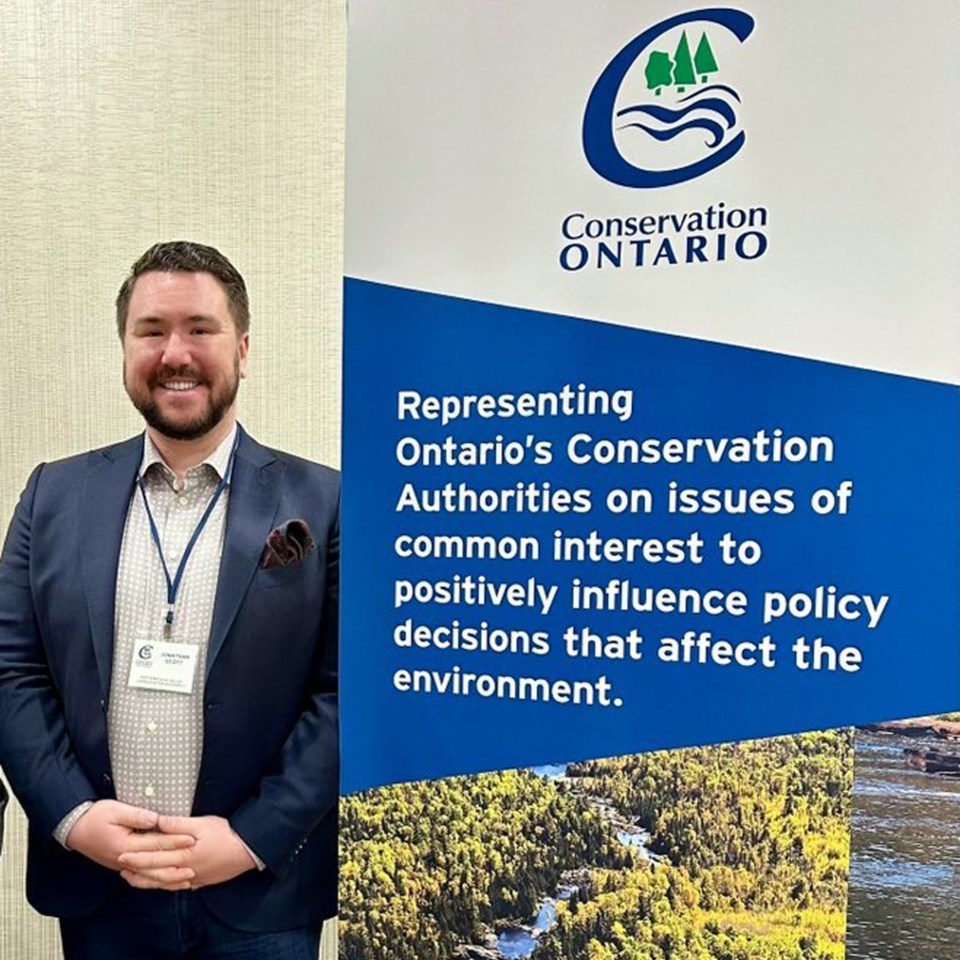This long-time Bradford local sees protecting the environment as part of the Canadian identity.
Ward 2 Coun. Jonathan Scott was acclaimed as one of two vice-chairs for Conservation Ontario, during their annual general meeting (AGM) in Richmond Hill on Monday, April 15.
“I’m excited,” said Scott, who is also vice-chair of the Nottawasaga Valley Conservation Authority (NVCA). “I like the work we do, both locally and province wide. I think it’s a really important time to have conservation authorities getting that balance right between environmental protection and smart growth.”
Monday’s AGM offered Scott the chance to dive into his new role almost immediately, as the chair needed to leave the meeting early to attend a council meeting, leaving Scott to chair the remainder. Those meetings generally include, among other things, a review of any new findings from Environment and Climate Change Canada, information about available grants, updates on the association’s advocacy efforts and a breakdown of any recent changes to federal or provincial regulations.
Luckily, this was far from Scott’s first time chairing a meeting.
“I like to think I bring some energy and a fresh perspective, as I have on the NVCA and as our town council’s green initiatives chair,” he said.
In addition to having been involved in various environmental causes and having worked with various non-governmental organizations throughout his professional career, Scott became chair the town’s green initiatives committee in April 2023 following the municipal election in November 2022, was elected as vice-chair of the NVCA in early 2023 and earlier this year was acclaimed for a second term.
In the previous term of council, Scott also began advocating for a phosphorus recycling facility among other ongoing measures in the Holland Marsh and worked with fellow Bradford Coun. Peter Ferragine as well as councillors from other municipalities to push for having Lake Simcoe included in the federal Freshwater Action Plan and the Canada Water Agency.
“What conservation authorities do at the local and regional level and what Conservation Ontario does on their behalf province wide is probably more important than ever right now,” he said. “I grew up in Bradford in the ’90s and early 2000s when we were starting to rapidly grow. We’re on the Holland River, the Holland Marsh, Lake Simcoe — these are such key parts of our area’s identity.
"On a personal level, I grew up skating on ponds, I grew up life guarding and swimming in lakes in Muskoka,” he said. “So much of the Canadian identity ... is based around water. We’re blessed to have fresh water, but we’re putting a lot of pressure on our lakes, our rivers and our wetlands.”
To address that, Scott says his focus remains on two key areas: encouraging smart growth and advocating for more funding to protect fresh water.
While he acknowledges that some planning processes can contain “red tape,” which should be improved to be faster and more fair to the development community, Scott also values the importance of performing “due diligence” to avoid unintended consequences such as flooding, lack of green space or neighbourhoods where residents can’t safely or reasonably walk to amenities.
“We need to build housing to bring housing within reach for people who can’t afford it today, but we also need to do it in a sustainable way,” he said.
Conservation Ontario is non-profit association representing Ontario’s 36 different conservation authorities, with the goal of promoting and strengthening those conservation efforts by bringing together those authorities to create policies and advocate on issues common to all of them.
Conservation Ontario is governed by a six-member elected board of directors and directed by a council comprised of appointed and elected municipal officials from the 36 conservation authorities.
For more information about Conservation Ontario, visit conservationontario.ca.



